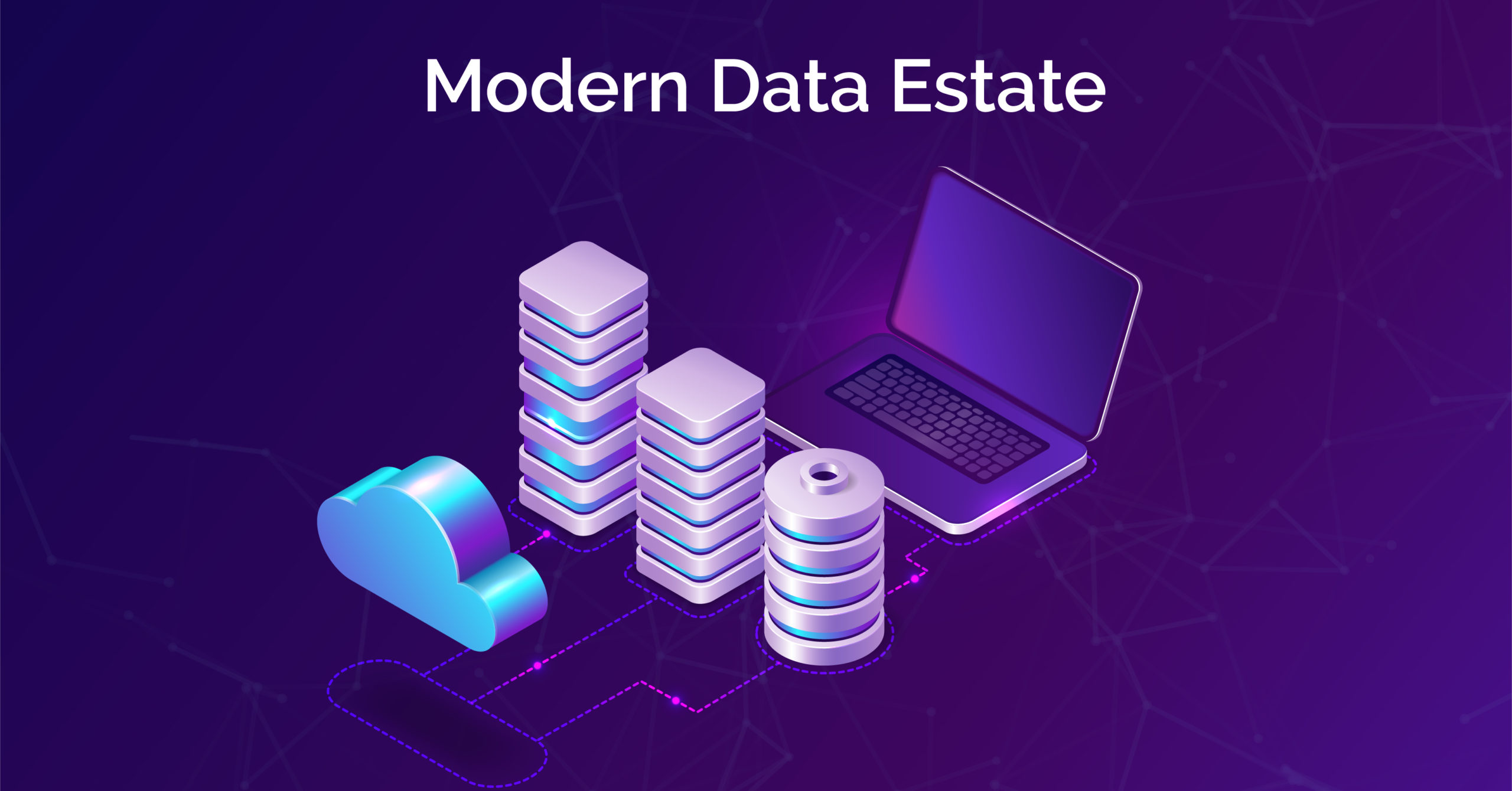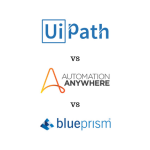The modernization of data estate is one function that Microsoft Azure has been able to achieve efficiently, making organizational data management easier, faster and delivering high performance. Going by the recent developments in the computation, analysis and storage of business data, we could say that this program has truly changed the scheme of things in the data management industry.
Table of Contents
The Modern Data Estate
Data estate modernization is characterized by a robust AI and data analytics system that gives more output in less time and provide sound feedback on data given it. Today, data can be managed on-premises with an SQL Server database engine. The SQL Server, which is the first of its kind with a built-in-AI, can be used to develop intelligent applications to manage businesses as well as fully manage corporate data in very secure formats.
On the other hand, the Microsoft Azure Data Service also has a robust package that provides cloud-based data management programs. This superstructure of data management defines the modernization of the data estate. It includes lots of data management and analytical services that that can properly carry out all sorts of advanced data management procedures on corporate data in the cloud.
Conversely, data can be easily lifted and shifted between the on-premise and cloud databases when using the hybrid data platform.
[sf_button colour=”accent” type=”standard” size=”standard” link=”https://datasemantics.co/contact-us?utm_source=Blog&utm_medium=azure-components-of-modern-data-estate” target=”_self” icon=”” dropshadow=”no” rounded=”no” extraclass=””]Contact us to know more[/sf_button]
Components of Modern Data Estate on Azure
Explaining the components of Modern Data Estate on Azure in detail so that you can choose what you need to modernize your data estate or data lake.
Cloud computing
The cloud computing exchange carries out a series of data transactions over the internet. The processes include networking, storage and server space provision. It has proved to be a reliable means of storing data and other forms of information with the advanced software architecture it provides. Microsoft Azure is one provider of cloud-based computing services with AI capabilities.
Cloud based computing comes with lots of advantages. They include the following: it is less expensive to operate since it does not require the employment of technical staff, setting up of structures to store files and the use of other forms of hardware. Cloud based data storage is also secure and reliable for the saving of long-term data. The sophisticated technology used in cloud databases offers lots of features ranging from AI modified BI and analyses of data on a grand scale. This provides cloud database users lots of reliable business information that can be translated into useful market steps. Also, cloud-based data storage guarantees access from anywhere in the world. This further implies the removal of the limits of data reach to business owners and staff.
The Azure Data Server

Microsoft Azure provides seamlessly endless possibilities in the management of data in the cloud and smooth interactions with on-premises servers. It offers flexible tools with which its users can effectively manage data that requires some high-level manipulation. The Azure data server has the following packages :
Azure SQL Database

With the Azure SQL Database, data owners are now more able to move data between the on-premises SQL servers and the Azure cloud. It comes with other packages besides the storing of data. It is designed to make the modernization of data a very simple process. It also comes with some advanced capabilities like threat-detection that ensures the security of your data as it moves between the on-premises server and the cloud server data platforms. Meaning that the interactions that exist between your SQL server and the Azure cloud server are free of possible intrusions that compromise the legibility of your data.
This package has some other accompanying services that are a part of its performance architecture and useful in its analytical output. It comes with machine learning services that transcribes data bits between human and machines language, enabling quick assessment of queries and responses. It also provides insights to the pattern of data collected on its platform. These insights make data more profitable as it goes beyond merely providing structured data but also provides solutions to data enquiries and steps to take in market situations. If, in any case, there is a risk of a data breach, the software identifies them and nullifies them. It has a vulnerability assessment dashboard where users can assess the state of security of their data estate and properly resolve impending threats to their data.
[sf_button colour=”accent” type=”standard” size=”standard” link=”https://datasemantics.co/contact-us?utm_source=Blog&utm_medium=azure-components-of-modern-data-estate” target=”_self” icon=”” dropshadow=”no” rounded=”no” extraclass=””]Contact us to know more[/sf_button]
Azure Data Factory

This service is a plus for data managers that use SQL Server Integration Services (SSIS). It provides a cloud-managed version of this data service that is advanced and with more AI capabilities for data manipulation and Business Intelligence. The Azure Data Factory is used to create and properly manage data domiciled in different locations. It coordinates all interactions and data analysis between all forms of data, whether on-premises or in the cloud. Its capabilities are not limited to the cloud as it can lift data between both platforms. It is a perfect fit for the hybrid data platform.
Azure SQL Data Warehouse

For organizations with very large data measuring lots and lots of large bytes, this Azure service is a sure bet. It is designed after the template of the SQL server and is a cloud-based petabyte scale server. It can effectively store lots and lots of data securely for its subscribers from any platform – whether on-premises or cloud-based. The capabilities of this package include the possibility to keep the performance of the server in control while still storing data in it. This implies that the data manager has complete control over the server while it’s in use.
Azure Data Lake

When it comes to handling very large sets of data – both structured and unstructured, the Azure Data Lake meets the requirements. It is a large repository for storing different scales and varieties of data. A plus with this package is that it keeps the data in their native form, thus, retaining their legibility.
Azure Data Lake is built on YARN and HDFS and can be accessed using either of U-SQL, Spark, Hive, HBase or Storm. It is also supported with an enterprise-grade SLA as well as Azure Active Directory security.
It has three parts viz Azure Data Lake store, Azure Data Lake analytics and Azure HDInsight. The Azure Data Lake store supports almost infinite amount of data. It can be used for collaboration of data between organizations without any risks of security breaches. The Azure Data Lake analytics is a compliment to the Azure Data Lake store. It is built on Apache YARN and can process any scale of queries instantly at very low costs. The Azure HDInsight is a Hadoop Platform as a Service that provides Apache Hadoop, HBase, Spark and Storm clusters.
Azure Storage
The Azure Storage structure is an exclusive data store that can serve many purposes. It is very reliable and, therefore, is useful in the storage of long term, valuable and sensitive data forms. It can be accessed from anywhere in the world through HTTPS platforms and languages including Java, Python, PHP and .NET among others. It is scalable and very secure.
With Azure Storage, you can take advantage of the following services:
- Azure Blob storage: this is ideal for unstructured data like text and binary data. It can be used for streaming audios and videos, uploading data for analysis on any platform and archiving.

- Azure Files: this is used to set up files that can be accessed from anywhere in the world using Server Message Block (SMB) protocol. Accessing this files requires a URL and a shared access signature.

- Azure Queue service: this service is for the storing and retrieval of messages that can be processed in turns. This way, your server can accept millions of data and process it at its own pace correctly as is done with double queues.
Azure also comes with Table storage (a part of Azure Cosmos DB) and Disk storage (a form of virtual hard disk).
[sf_button colour=”accent” type=”standard” size=”standard” link=”https://datasemantics.co/contact-us?utm_source=Blog&utm_medium=azure-components-of-modern-data-estate” target=”_self” icon=”” dropshadow=”no” rounded=”no” extraclass=””]Contact us to know more[/sf_button]
Azure Databricks

When it comes to enabling the use of data across board such that data engineers can be allowed access into an organization’s data or creating cloud environments for the smooth operations on data, the Azure Databricks service sets the pace. It is an Apache Spark-based platform on the Azure cloud. It practically allows you control over how your data moves across the cloud space. It is very fast and easy to manage and is very compatible with other Azure components.
Power BI

Power BI has made business reports and their analyses a plus for its users. It can transform data from both SQL servers on-premises and the Azure cloud to create understandable illustrations with which businesses can carry out steps to increasing their market benefits.
Azure Cosmos DB

Going beyond the on-premises, cloud based and hybrid data platforms, organizations dealing on the development of instant apps can take advantage of the Azure Cosmos DB. It allows the instant access to apps from anywhere in the world regardless of distance as the architecture for storage is serverless. Thus, there is no limit to the amount of data transmitted from the organization. This development reveals the future of the future data estate.
Conclusion
The Azure data server platform provides a reliable on-cloud and hybrid data management system that is a step further ahead of the SQL server on-premises. Its attendant services provide AI analysis to corporate data as well as BI solutions for business decisions.
[sf_button colour=”accent” type=”standard” size=”standard” link=”https://datasemantics.co/contact-us?utm_source=Blog&utm_medium=azure-components-of-modern-data-estate” target=”_self” icon=”” dropshadow=”no” rounded=”no” extraclass=””]Contact us to know more[/sf_button]
Videos related to – Modern Data Estate on Azure













